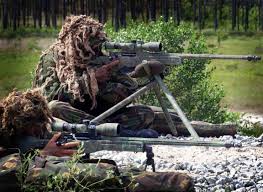The Role and Training of a Royal Marine Sniper

Introduction
The Royal Marine Sniper is an elite designation within the United Kingdom’s armed forces, known for its rigorous selection process and high-level marksmanship skills. As specialists in reconnaissance and precision shooting, Royal Marine Snipers play a crucial role in modern warfare, operating under intense conditions and often behind enemy lines. Their expertise not only aids in combat effectiveness but also provides critical intelligence to ground troops and commanders.
Selection and Training
The journey to becoming a Royal Marine Sniper begins with an intense selection process following the completion of the Royal Marine training programme. Candidates typically have to demonstrate exceptional physical fitness, tactical aptitude, and mental resilience. Successful candidates then undergo the 10-week sniper course, which is considered one of the toughest in the military. The training includes advanced marksmanship, camouflage techniques, and fieldcraft skills, where snipers learn to blend into their environment and maintain stealth during operations.
During this phase, they are taught to engage targets at ranges exceeding 1,000 yards, using rifles such as the L115A3, renowned for its accuracy and effectiveness in various conditions. The combination of physical training and theoretical knowledge equips these specialists to handle the complexities and unpredictable elements of battlefield scenarios.
Role in Modern Warfare
Royal Marine Snipers operate in small teams, often serving alongside infantry units, where they are tasked with intelligence gathering and force protection. Their ability to engage targets from significant distances allows them to neutralise enemy threats with minimal exposure, significantly enhancing the safety of their comrades. Recent deployments have seen snipers involved in counter-terrorism operations and peacekeeping missions in conflict zones across the globe.
Their role has evolved in response to changing warfare tactics, with snipers now employing advanced technology, such as drones for reconnaissance, alongside traditional skills. This integration of high-tech tools with ground combat expertise illustrates how the role is adapting to meet contemporary military needs.
Conclusion
The Royal Marine Sniper remains a vital asset in the UK’s military framework. As global challenges become more complex, the demand for highly trained snipers will likely continue to grow. By maintaining their rigorous training standards and embracing technological advancements, Royal Marine Snipers will remain at the forefront of military effectiveness, ensuring preparedness for future operational requirements. Their contribution to military strategy and their impact on modern combat cannot be understated, making them an integral part of the Royal Marines.









